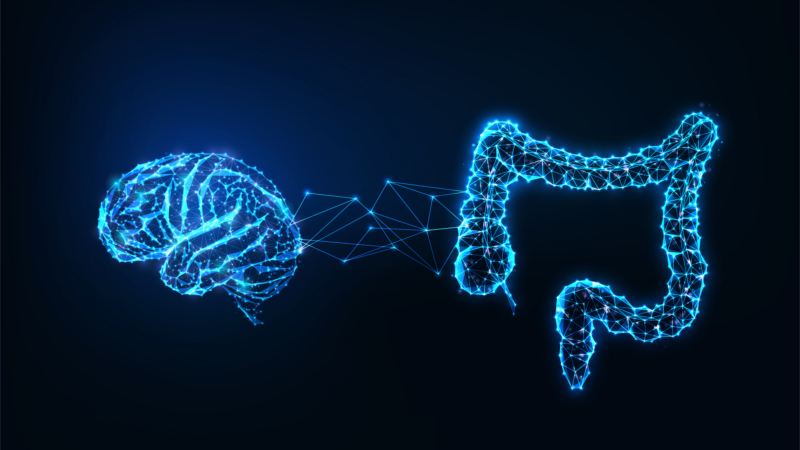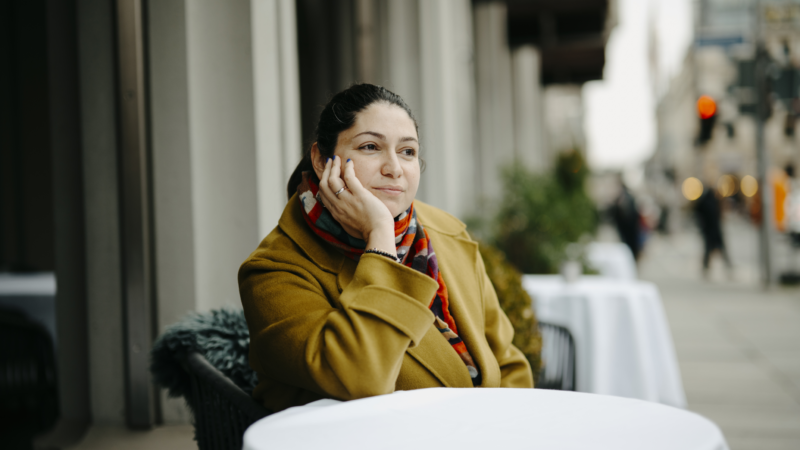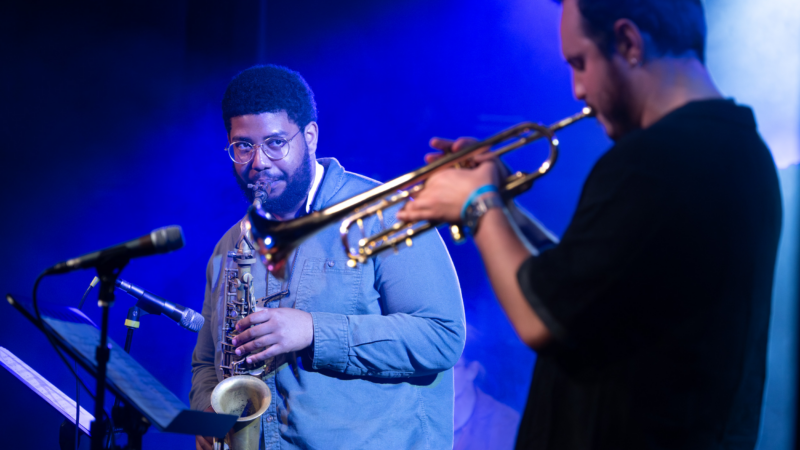These neurons in the abdomen help form the gut-brain connection
Not all brain cells are found in the brain.
For example, a team at Caltech has identified two distinct types of neurons in the abdomens of mice that appear to control different aspects of digestion.
The finding, reported in the journal Nature, helps explain how clusters of neurons in the body play a key role in the gut-brain connection, a complex two-way communication system between the brain and digestive system.
It also adds to the evidence that neurons in the body can take on specialized functions, “just like in the brain,” says Yuki Oka, an author of the study.
“The peripheral nervous system is smart,” says Frank Duca of the University of Arizona, who was not involved in the study.
“You have specific neurons within this system that are performing a wide variety of functions, either with the brain’s help or sometimes even without the brain’s input,” he says.
Fight or flight gut check
The study focused on a subset of the peripheral nervous system called the sympathetic nervous system, which becomes active when the brain detects danger.
“Your adrenaline goes up and your glucose level in the blood is really high because you need to fight or flight,” Oka says.
At the same time, the sympathetic nervous system dials back functions that are less urgent, like digestion and moving food through the gut.
But how does the system get the right message to each internal organ?
Oka’s team thought the answer might involve specialized neurons able to send different messages to different organs, so they focused on clusters of abdominal neurons called ganglia.
“We looked at one of those big ganglia that controls the lower gut function,” Oka says, including the intestine, spleen, stomach and liver.
The team used cutting-edge genetic techniques to characterize the neurons in that cluster. They found two distinct types of cells, with distinctly different jobs.
“It turned out that digestive-related function are controlled by one major cell type, and another class of neuron is involved in gut motility,” Oka says.
When the team stimulated one type of neuron, the animal’s liver would reduce production of enzymes including bile, a digestive fluid that breaks down fat. When they stimulated the other type of neuron, the animal’s gut would move food more slowly.
Although the research involved mice, Oka says, a similar system is probably present in people, whose digestive tracts are quite similar.
Special neurons, better drugs?
The research supports an emerging view among scientists that specialized neurons in the body play an important role in the gut-brain connection, which can affect everything from hunger to mood.
Although the study was limited to signals traveling from the brain to the gut, Duca says, other research suggests that specialized neurons also help send information in the other direction.
“The gut can relay signals to the brain about a status of a meal or inflammation,” Duca says, “and then the brain can generate a response back to the gut on how to react.”
Other internal organs also rely on specialized neurons located outside the brain and spinal cord. The heart, for example, contains an internal network of neurons that can regulate electrical and mechanical activity even when the organ has been removed from the body.
All of these specialized neurons offer potential targets for treating everything from high blood pressure to depression to irritable bowel syndrome, Duca says.
In theory, “future drugs could target only specific subsets of those neurons to activate just one function and not have all the functions be activated,” Duca says.
If the approach works, he says it could mean more effective drugs with fewer side effects.
Biden commutes the sentences for 1,500 people, the largest act of clemency in a day
The 1,500 people had been serving long prison sentences that would have been shorter under today's laws and practices. They had been on home confinement since the COVID pandemic.
Some Syrian refugees in Berlin ponder returning post-Assad, others call Germany home
Germany hosts almost a million Syrians who fled war and dictatorship. The toppling of the Assad regime has raised questions for exiles about their next step.
10 biographies and memoirs for the nonfiction reader in your life
These true stories range from a "meow-moir" of a Siberian cat to an exploration of what U.S. presidents do after the White House. Check out these nonfiction reads recommended by NPR staff and critics.
South Korea’s Yoon defends martial law decree as an act of governance
In an address to the nation, President Yoon Suk Yeol claimed the opposition-controlled parliament has been destroying the country's liberal democratic order.
The Geminids meteor shower peaks at the end of the week. Here’s what to expect
The Geminids are one of the best and most visible annual meteor showers, when at least 120 meteors can usually be seen per hour. But 2024 will be different, thanks to the year's final full moon.
The Essential Jazz Discoveries of 2024
This year's unmissable jazz releases came in two flavors: breakthrough releases by driven young newcomers, and a heap of unearthed treasures from the vault.








